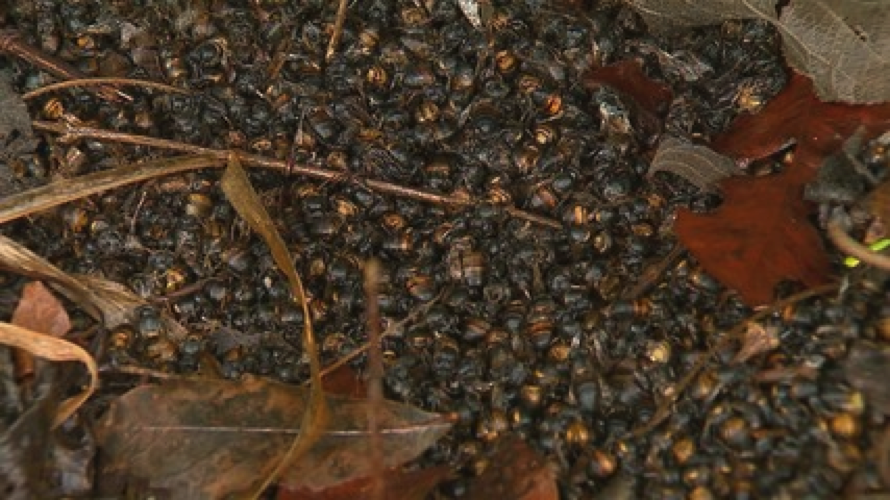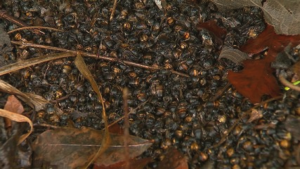
2 pesticides killed 4 million bees in Hawk Peixoto, says report
Municipality wants to encourage honey producers to make migratory beekeeping. Idea is also to bring together producers to monitor application of insecticides.
G1 São Carlos and Araraquara : 18/02/2014
http://g1.globo.com/sp/sao-carlos-regiao/noticia/2014/02/2-agrotoxicos-mataram-4-milhoes-de-abelhas-em-gaviao-peixoto-diz-laudo.html
The use of two pesticides in bean crops, coffee and soybeans may have been responsible for the deaths of more than four million bees Hawk Peixoto, according to the results of tests on the dead bees by a laboratory. The municipality wants to encourage honey producers to make the migratory beekeeping, away from the hives of agricultural areas.
The analysis, made at the request of the Department of Environment, He pointed to the presence of active principle of fosfonometil, commonly known as glyphosate, and is present in about 20 Marks applied herbicides to eliminate weeds. It was also found chlorpyrifos, an insecticide used in more than 70 products to combat pests in soybean crops, coffee and beans.
The beekeeper José Luiz dos Santos was among those who lost money, after losing 130 hives. The result confirmed the suspicion of it. "I'm disgusted, because the guys use poison without knowing what's going on and end up hurting me. So we have to see, because I live it ", said.
Osmar Malaspina, who is a researcher in the Biology Department Unesp of Rio Claro, He believes it is more likely that the pesticide may have killed the bees, but do not rule out that the two pesticides, together, They may have increased the harmful effect on bees. "The combination of these two products can strengthen and make the most toxic product and of course will kill more bees", said.
The Valdeir Ribeiro de Sousa beekeeper damage accumulates and, the last two years, lost 40 hives. This year he will try again, just do not know whether to get away from pesticides. "Today you gun the box and does not catch the bees, It takes very little. Those who have kills, then you will end. Who depends on beekeeping will have to go to another branch ", said.
more poison
In 2012, the city beekeepers lost hundreds of hives and killed more than a million bees. In season, one report found that they also died because of another poison used in crops.
The sale of these pesticides is allowed by the Ministry of Agriculture. So according to the director of Environmental Hawk Peixoto, Fabio Edson Rodrigues, there is no way to punish anyone. The idea is to bring together the producers to monitor the application of insecticides in the region. "Having an audit to find out where it is being used, by whom it is being used, periodicity. We believe that there is an indiscriminate use of these pesticides. Farmers use without being aware of the potential that this poison can achieve ", said.
migratory beekeeping
The hives were in the middle of a forest in the city and two kilometers there are coffee plantations, soy and beans. With so next threat, beekeepers will pick up all this structure and lead to a secluded area, further pesticides. They want to develop the migratory beekeeping, changing the hives from one region to another following the flowering. "Where the bees can make honey and, the harvest season, this brings back honey and it is processed, packaged and sold in the city ", Rodrigues explained.
The Department of Agriculture and the Gavião Peixoto Environment aims to encourage honey producers to form a cooperative and, with that, have facilities to participate in the migratory beekeeping.


Sorry, the comment form is closed at this time.